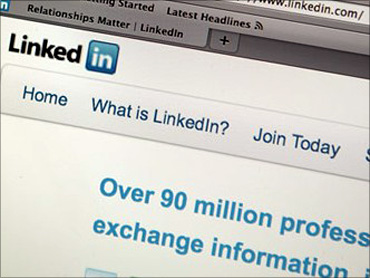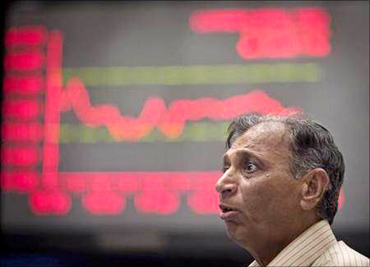Photographs: Reuters
The business-oriented service, which is seen as a bellwether among the slew of Internet companies, is planning to float initial public offering and hopes to raise as much as $274 million this week.
It is looking to price its offering of 7.8 million shares between $32 and $35 a share, which will give it a valuation between $3 billion and $3.3 billion.
The company became profitable in 2010 with a net income of $10.1 million and net revenues of $161.4 million in the first nine months of 2010.
...
Should investors buy into LinkedIn's IPO hype?
Image: IPO has been highly anticipated.Photographs: Reuters
Net income was $2 million, compared to $1.8 million in the first quarter of 2010.
The IPO has been highly anticipated because LinkedIn will set the ball rolling for other high-profile Internet companies projected to go public in a year or two, including such firms as Facebook, Zynga, Groupon, Pandora, Kayak, Yelp, Rovio and Zillow.
The web site, which was launched in May 2003, has more than 100 million registered users in more than 200 countries.
...
Should investors buy into LinkedIn's IPO hype?
Image: Market watchers warn against pinning too much on LinkedIn's public debut.Photographs: Reuters
But market watchers warn against pinning too much on LinkedIn's public debut.
They admit that while the IPO launch would be good news for the technology sector, there is no guarantee that the site's offering would increase.
They cite the fate of Renren, called the 'Facebook of China', whose shares hit the roof on the day it went public, but now they are trading well below the initial launch price.
Market watchers say even Facebook, the big daddy of social networking, is struggling in the secondary market.
...
Should investors buy into LinkedIn's IPO hype?
Image: Most members do not visit the site on a monthly basis.Photographs: Reuters
Secondary markets have become a popular means for insiders at private technology firms to cash in prior to an IPO.
The problem with LinkedIn is that, unlike Facebook and other social-networking sites, a substantial majority of its members do not visit its web site on a monthly basis, and a majority of its page views are generated by a minority of its members.
...
Should investors buy into LinkedIn's IPO hype?
Image: There are more registered members than actual members.Photographs: Reuters
LinkedIn also admits that the number of its registered members is higher than the number of actual members because 'some members have multiple registrations, other members have died or become incapacitated, and others may have registered under fictitious names'.
The company's admission that: 'We do not have a reliable system to accurately identify the number of actual members' will be true of other such sites, but since LinkedIn will be the first social-networking site to float an IPO, this admission can prove crucial for those investors who are looking at the long-term picture.
...
Should investors buy into LinkedIn's IPO hype?
Image: It expects fall in profits in short term.Photographs: Reuters
As if all this wasn't enough, LinkedIn says its profitability is going to decline in the short term as it plans to invest heavily in 2011 and aggressively expand its workforce, especially sales staff.







article